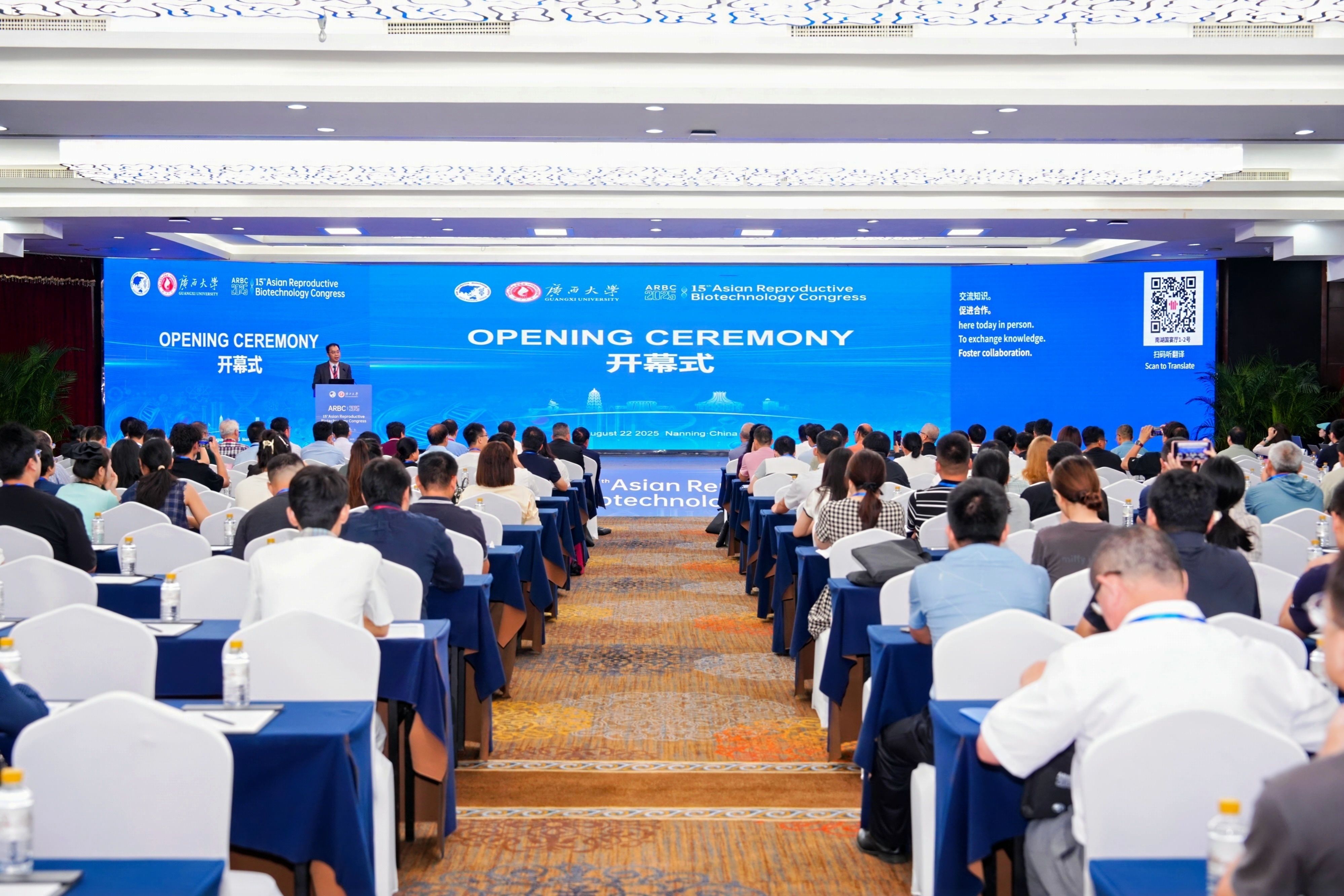On August 22, the 15th Asian Conference on Reproductive Biotechnology officially opened in Nanning, hosted by the School of Animal Science and Technology, Guangxi University, and co-organized by the Guangxi Animal Husbandry and Veterinary Association and the Key Laboratory of Livestock Breeding and Disease Prevention, Guangxi.
Wang Honghu, Vice Chairman of the Guangxi Association for Science and Technology, and Yu Wenjin, Vice President of Guangxi University, attended the opening ceremony and delivered remarks. The opening ceremony also featured keynote presentations from distinguished experts, including Academician Li Jinsong (Chinese Academy of Sciences), Nam-Hyung Kim (Academician of Korea Advanced Institute of Science and Technology, Professor at Chungbuk National University), Sun Qingyuan (Chief Scientific Advisor, Guangdong Second People’s Hospital, Reproductive Medicine Center), and Liu Pengtao (Professor, Li Ka Shing Faculty of Medicine, University of Hong Kong).
Wang Honghu emphasized that the conference serves not only as a major academic event in reproductive biotechnology in Asia, but also as an important platform for experts to discuss development and foster collaboration. He expressed confidence that joint efforts by scholars would advance research and applications in reproductive biotechnology, benefiting more people and providing solid support for high-quality economic and social development in the region.

Yu Wenjin noted that this year’s conference aligns with current scientific and societal needs, promoting the cross-border sharing of the latest research achievements and discussions on future directions. The event aims to strengthen scientific cooperation between China and ASEAN countries, enhance collaborative innovation in reproductive biotechnology across Asia, and provide new momentum and platforms for translating fundamental research into practical applications.
The conference, themed “Empowering Animal and Human Health through Reproductive Biotechnology”, gathered over 300 experts, scholars, and industry representatives from China, Korea, Thailand, Vietnam, the Philippines, Pakistan, and other countries. Participants engaged in five specialized forums covering topics such as gamete and embryo development, reproductive regulation, and animal cloning and gene editing, exchanging insights on the latest advancements and applications in reproductive biotechnology.
 Home
>
News & Events
>
News
Home
>
News & Events
>
News
 Home
>
News & Events
>
News
Home
>
News & Events
>
News




